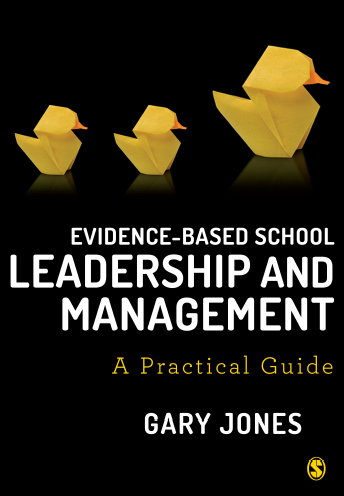Friday 6 April, 2018 saw the TES publish an article with the headline: Performance-related
pay is 'ineffective in schools', and which is based on a study by Bryson,
Stokes, et al. (2018). What’s
particularly disappointing about the article – apart from the reference cited
in the article being a blog
post based on the research rather than the research itself – is that the
research shows that human management practices in schools do matter. Whereas the focus of the TES article is on
what we already have a pretty good idea
does not work i.e. performance related pay. So given the increasing concerns
about a shortage
of teachers in the future and the
impact of poor leadership
and management on teacher retention it
would be far more helpful if the article focused on ‘what works’ rather than
recycling a tired old headline.
Can HRM improve schools performance?
Bryson, et al. (2018) compared schools to observationally equivalent
workplaces in the rest of the British economy using measures of workplace
performance that are common across all workplaces and found that intensive use
of HRM practices is correlated with substantial improvement in workplace
performance, both among schools and other workplaces. Yet, the types of
practices that improve school performance are different from those that improve
performance in other workplaces. Moreover, there would appear to linear returns
to HRM intensity in most workplaces, whereas in schools they are an increasing function
of the intensity of HRM use.
In their blog post summarising the research Bryson, Stokes, et al. (2018b) state:
Schools benefit from increased use of rigorous hiring practices when selecting new recruits, employee participation mechanisms (such as team briefings), total quality management (TQM) and careful record-keeping, none of which seem to improve workplace performance elsewhere in the economy. By contrast, increased use of performance-related pay and performance monitoring, which do improve workplace performance elsewhere in the economy, are ineffective in schools. The only HRM practice that benefits both schools and other workplaces is more intensive provision of training.
Nevertheless,
it is important to note that all research has limitations. In this instance, although the research headlines
are accessible to all, it would requires a post-graduate level of statistics to
appraise the accuracy of the research.
Second, the research drew upon work-place survey data from 2004 and 2011,
which raises questions about whether HRM practices have changed since the data was collected Third, the
research is not actionable as there is insufficient detail about how the various
human resources techniques were carried out, and as everyone who is involved in
evidence-based education knows – it ain’t what you do, but the way that you do
it.
What are the implications for senior school
leaders?
- Always, always read the original research cited in newspaper articles. The odds are that the research will take both a difference stance to that reported and will also have a number of unreported limitations.
- Do not confuse correlation with cause and effect – extensive use of HRM practices appears to be correlated with improvement in work-place performance. That does not mean that extensive use of HRM has caused that improvement, as other factors may well be at work.
- Evidence-based practice within schools should not be limited to matters relating to teaching and learning. Evidence-based practice is also applicable to all aspects of the work of the school including human-resource management, operations and finances
- If you are thinking about introducing performance related pay for teachers within your school – think again – the evidence suggests that it is not appropriate for complex tasks such as teaching.
References
Bryson, A.,
Stokes, L. and Wilkinson, D. (2018a). Can
Hrm Improve Schools’ Performance? Bonn. Institute of Labor Economics.
Bryson, A., Stokes, L. and Wilkinson, D. (2018b). Which Modern Management Techniques Work Best for Schools? IOE London Blog.
Bryson, A., Stokes, L. and Wilkinson, D. (2018b). Which Modern Management Techniques Work Best for Schools? IOE London Blog.
